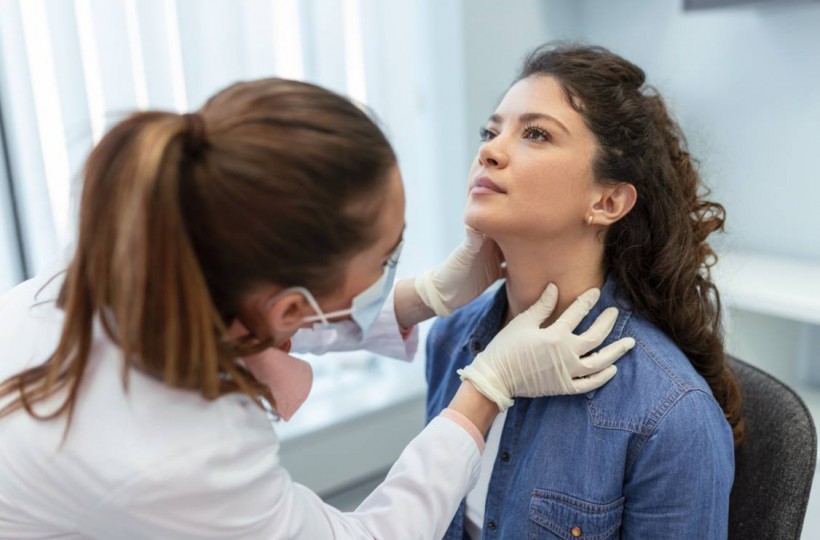Guide to Lymphoma Cancer Symptoms and Treatment Options
Warning: Undefined variable $post in /home/dietofli/public_html/wp-content/plugins/code-snippets/php/snippet-ops.php(584) : eval()'d code on line 3
Warning: Attempt to read property "ID" on null in /home/dietofli/public_html/wp-content/plugins/code-snippets/php/snippet-ops.php(584) : eval()'d code on line 3
The estimated reading time is 4 minutes
Warning: Undefined variable $post in /home/dietofli/public_html/wp-content/plugins/oxygen/component-framework/components/classes/code-block.class.php(115) : eval()'d code on line 3
Warning: Attempt to read property "ID" on null in /home/dietofli/public_html/wp-content/plugins/oxygen/component-framework/components/classes/code-block.class.php(115) : eval()'d code on line 3

Lymphoma, a formidable adversary within the oncology landscape, is a complex and diverse group of blood cancers originating in the lymphatic system. In recent years, advances in medical science have provided profound insights into the nuanced symptoms and innovative treatment options for individuals grappling with this formidable disease. This guide aims to shed light on the subtle lymphoma cancer symptoms and explore the cutting-edge treatment modalities for various types of lymphoma cancers.
I. Understanding Lymphoma Symptoms:
A. Pervasive Fatigue and Weakness:
Lymphoma often manifests through persistent fatigue and weakness, a subtle yet pervasive symptom that can significantly impact daily life. As the malignant cells multiply, they infiltrate the bone marrow, leading to anemia and contributing to the overwhelming sense of tiredness experienced by many patients.
B. Unexplained Weight Loss:
Unexplained weight loss is a hallmark sign of lymphoma. The accelerated metabolic activity of cancer cells can lead to a sudden and unintentional shedding of pounds. Individuals noticing significant weight loss without diet or physical activity alterations should promptly consult a healthcare professional.
C. Swollen Lymph Nodes:
Enlarged lymph nodes, particularly in the neck, armpits, or groin, are a common manifestation of lymphoma. The lymphatic system, a vital component of the body's immune system, becomes compromised as cancerous cells disrupt its normal functioning. Palpable lumps may be an early indication of lymphoma and warrant thorough investigation.
C. Night Sweats and Fever:
Persistent night sweats and unexplained fever are often associated with lymphoma. Lymphoma cancer causes disruption in the body's temperature regulation, leading to recurrent fever episodes and drenching night sweats. These symptoms, when chronic, should not be dismissed and necessitate medical attention.
II. Navigating Treatment Options:
A. Chemotherapy:
Chemotherapy, a cornerstone in the treatment of lymphoma, involves the use of powerful drugs to target and eliminate cancer cells. This systemic approach is effective in eradicating both localized and widespread lymphomas. The choice of chemotherapy regimen is tailored to the specific type and stage of lymphoma, ensuring optimal efficacy.
B. Immunotherapy:
Immunotherapy has emerged as a revolutionary approach to treating lymphoma. By harnessing the body's immune system to identify and destroy cancer cells, immunotherapy offers a targeted and less invasive alternative to traditional lymphoma cancer treatment in India. Monoclonal antibodies and checkpoint inhibitors are among the innovative immunotherapeutic agents transforming lymphoma care.
C. Stem Cell Transplantation:
For certain lymphoma cases, particularly when the disease is resistant to standard treatments, stem cell transplantation may be considered. This procedure involves replacing damaged or diseased bone marrow with healthy stem cells, allowing for the regeneration of a functional and healthy immune system.
III. Supportive Therapies and Holistic Care:
A. Palliative Care:
In addition to curative treatments, palliative care plays a crucial role in enhancing the quality of life for individuals with lymphoma. Symptom management, emotional support, and pain control are central aspects of palliative care, ensuring patients experience comfort and relief throughout their treatment journey.
B. Integrative Therapies:
Integrative therapies, including acupuncture, yoga, and meditation, are gaining recognition for their role in complementing traditional cancer treatments. These modalities contribute to physical well-being and address the emotional and psychological challenges faced by individuals undergoing lymphoma treatment.
In conclusion, a comprehensive understanding of lymphoma cancer symptoms is paramount for early detection and intervention. Timely diagnosis, coupled with advancements in treatment options, provides hope for individuals facing the challenges of lymphoma. As you continue to delve into the intricacies of this formidable disease, ongoing research and medical breakthroughs pave the way for a future where lymphoma is not just treatable but conquerable. For those navigating this challenging journey, the synergy of awareness, early detection, and state-of-the-art treatments becomes a beacon of hope in the face of adversity.














